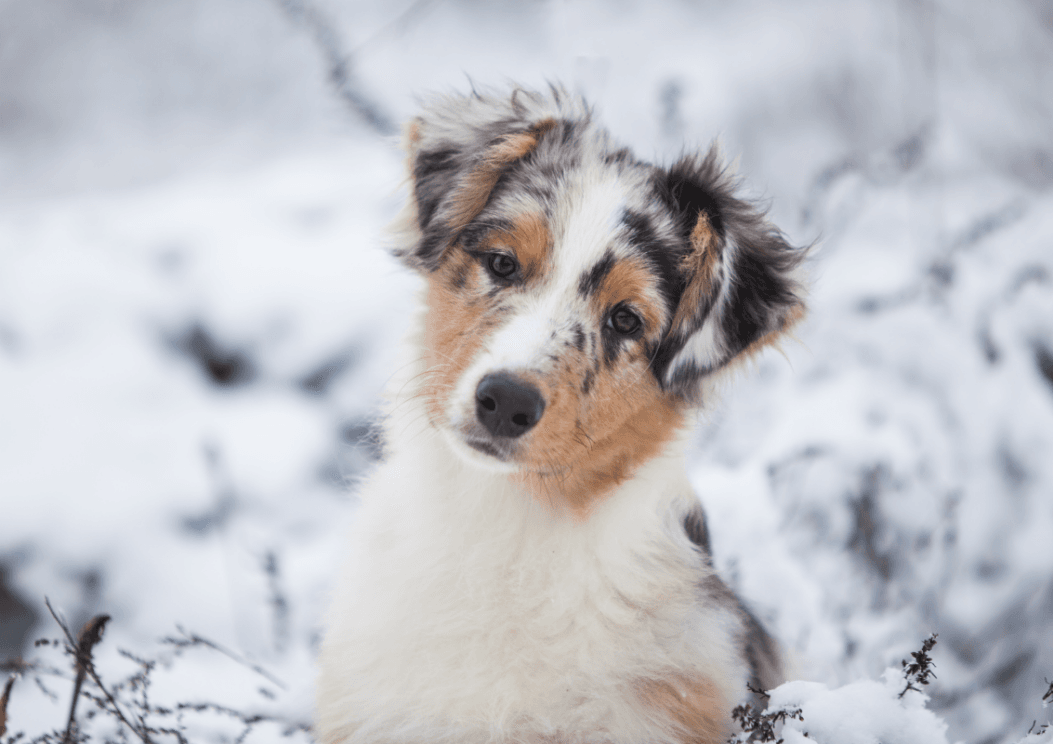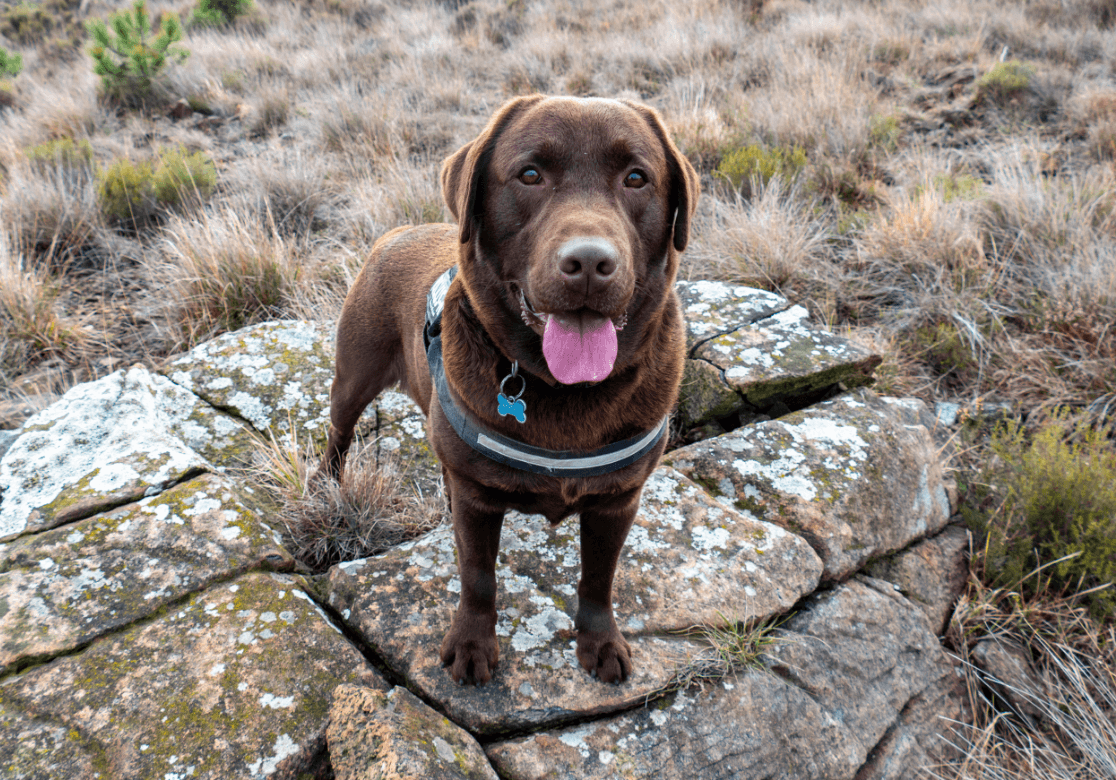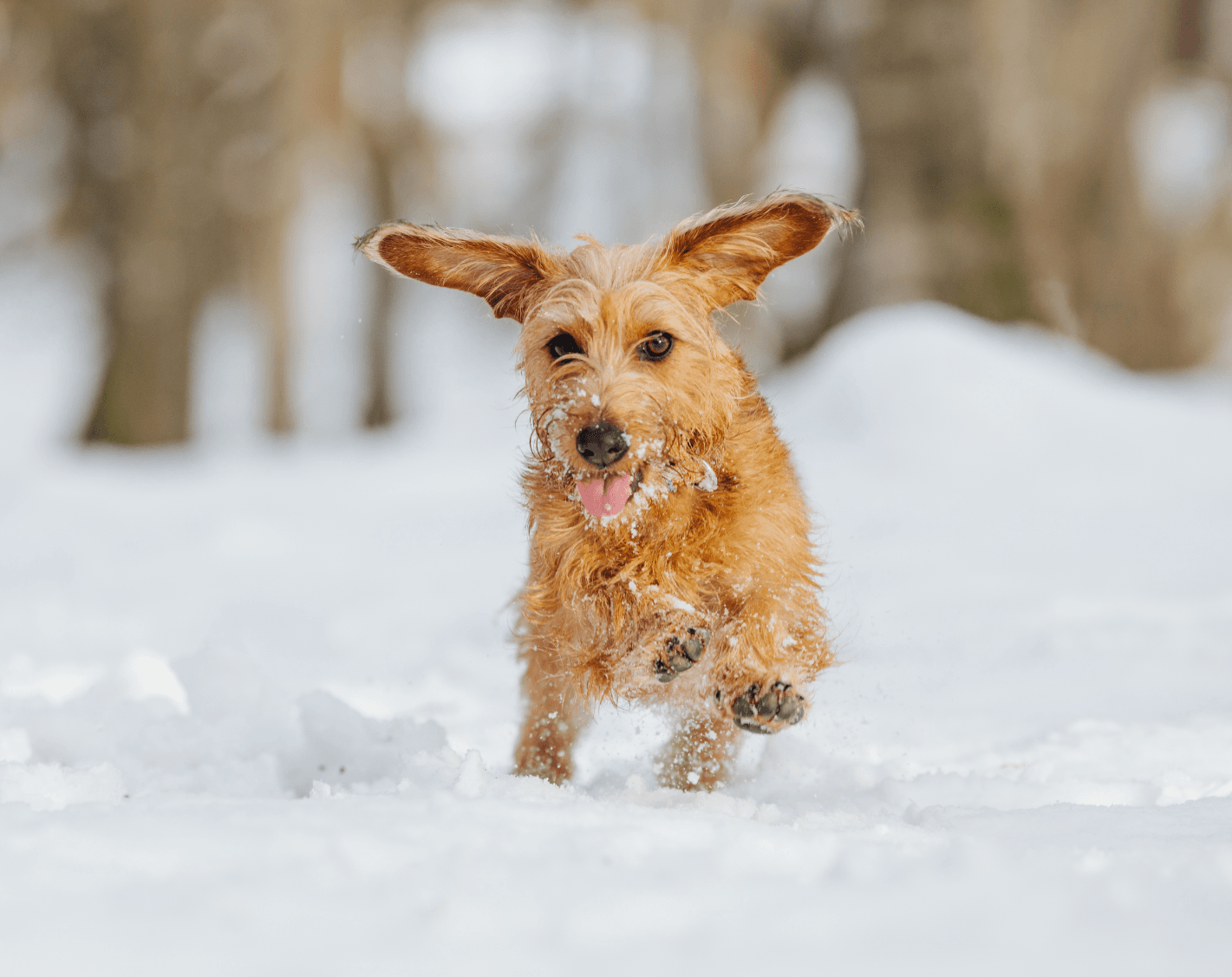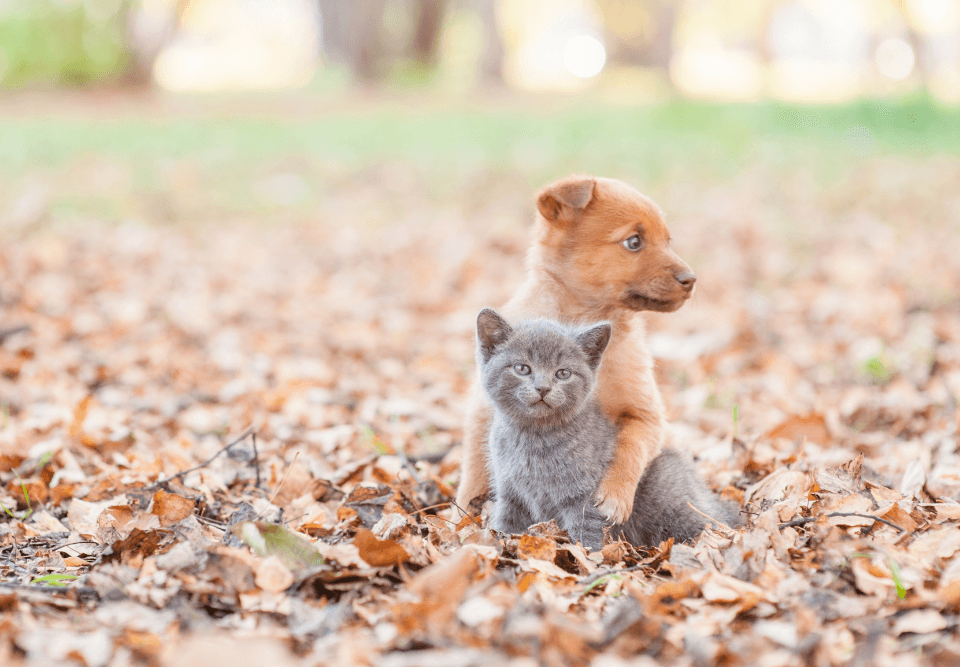

Keep your pet active and warm
How to care for your pet during the winter

During the winter months, as the temperature drops, it’s important to adjust how you care for your pet to help them stay warm and safe. Whether your pets are spending time indoors and outdoors, there are several ways to ensure your dog, cat or rabbit lives a healthy life, has plenty of playtime and exercise, and you’re prepared to adapt to the change in season.

Keep your pet active and warm
In the colder months, your pet may seem less inclined to go outside – can you blame them? Like humans, our pets feel the cold, especially if they are short-haired dogs and have a thinner coat. On chilly days, while you may not be able to tempt your dog on a winter walk, providing a coat to layer up and stay warm can make a big difference when outside in the cold weather. If it has been wet outside, rub your dog down with a clean towel to remove excess water and moisture – it will make a big difference to help them warm up sooner, particularly with long-haired dogs.
Cats may prefer to stay indoors, especially at night. Provide plenty of enrichment such as toys and a scratching post to encourage them to move and stay active inside the home. If your cat loves the outdoors regardless of the change in season, place a shelter in the garden, lined with foil and a blanket so they have a warm, dry place to rest.
Small animals that live outside like rabbits and guinea pigs should be moved to a dry, draft-free area, like a shed or garage, or even bring them in the house. If they have to stay outdoors, place more blankets over their hutch to prevent them feeling chilly, and extra bedding to snuggle down for extra comfort.
Indoor animals like Hamsters should also be given extra bedding and kept away from drafts to prevent them from going into hibernation.


Keep your pet visible on walks
Walking your dog during the wintertime can mean you face a range of weather conditions, from rain, ice, snow and fog. Ensure your pet is visible on their walk and fit them with a reflective collar or one that lights up.
Once the clocks have moved forward an hour, the sun can start setting before 4pm. Don’t get caught out walking your pet in the dark, losing the daylight sooner than you expected and before you arrive home. Take a torch with you just in case, and always walk your dog with an up-to-date I.D tag, ensuring their microchip is registered with your latest contact details.


Check their paws after walking them
In cold, icy conditions, dogs can walk on gritted pavements and salted areas. This can get stuck between their paw pads and irritate the skin. Sharp salt and grit can cut them and cause bleeding, so check your dog’s paws and clean them to remove leftover grains.
In particular, in wet winter conditions, snow and melting ice can get trapped in between their toes where trapped moisture can cause sores. Dry your dog’s feet to prevent this from happening and restore heat to prevent frostbite.

Prevent Slips on icy surfaces
Dogs with arthritis and weak joints could slip on the ice, so be careful to keep them supported during their walk. Fit your dog with a harness so you can steady them, taking extra care when walking on slippery surfaces – both you and your pet are at risk of falling over. If walking alone, always take a mobile phone with you in case you have to call for help.
Stay away frozen lakes
Getting out and about with your pet during the winter means you get to see amazing views, like a beautiful frozen lake. Although it’s quite a remarkable sight to see, prevent your dog from walking over it as it may crack and they could fall into below zero temperatures.
Check under your car
Cats, in particular, tend to hunker down and shelter under cars overnight for cover. Before taking off on your journey, check under your vehicle in case a cat is hiding under the engine.

Antifreeze
Most antifreeze products contain (ethylene glycol) which is extremely toxic to cats and dogs. Animals find the taste of de-icers sweet, which lures them into licking spillages on the road or in the garage. Sadly, the effects of antifreeze can be fatal to pets, as it can harm their kidneys.
Symptoms of antifreeze poisoning include:
- Drinking more than usual
- Pet seems lethargic and drunk low energy
- Vomiting
- Seizures fits
- Panting
- Twitches
- Spasms
- Collapse
If you notice your pet is experiencing any of these signs, visit your local vet immediately. Always check that the antifreeze container has been tightened securely and the bottle is kept in a cupboard and an area away from where your pet spends their time.
Although it’s cold outside, being aware of accurate advice and care for your pet during the winter will ensure they enjoy time on their walks and stay healthy spending time outside. If you have any questions about winter pet care, please get in touch with your local Animal Trust vet.

Animal Trust is a trading name of Animal Trust Vets CIC, a community interest company registered in England and Wales. Company Registration No: 07938025
Registered Office: Animal Trust Administration Centre, Cedab Road, Ellesmere Port, CH65 4FE
